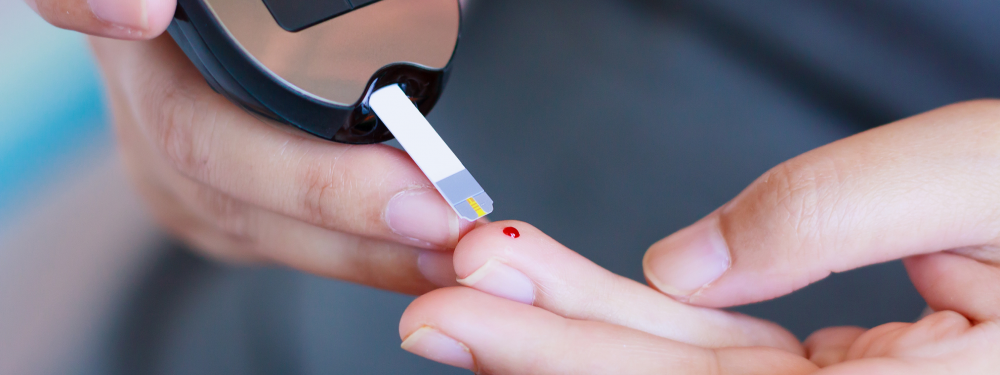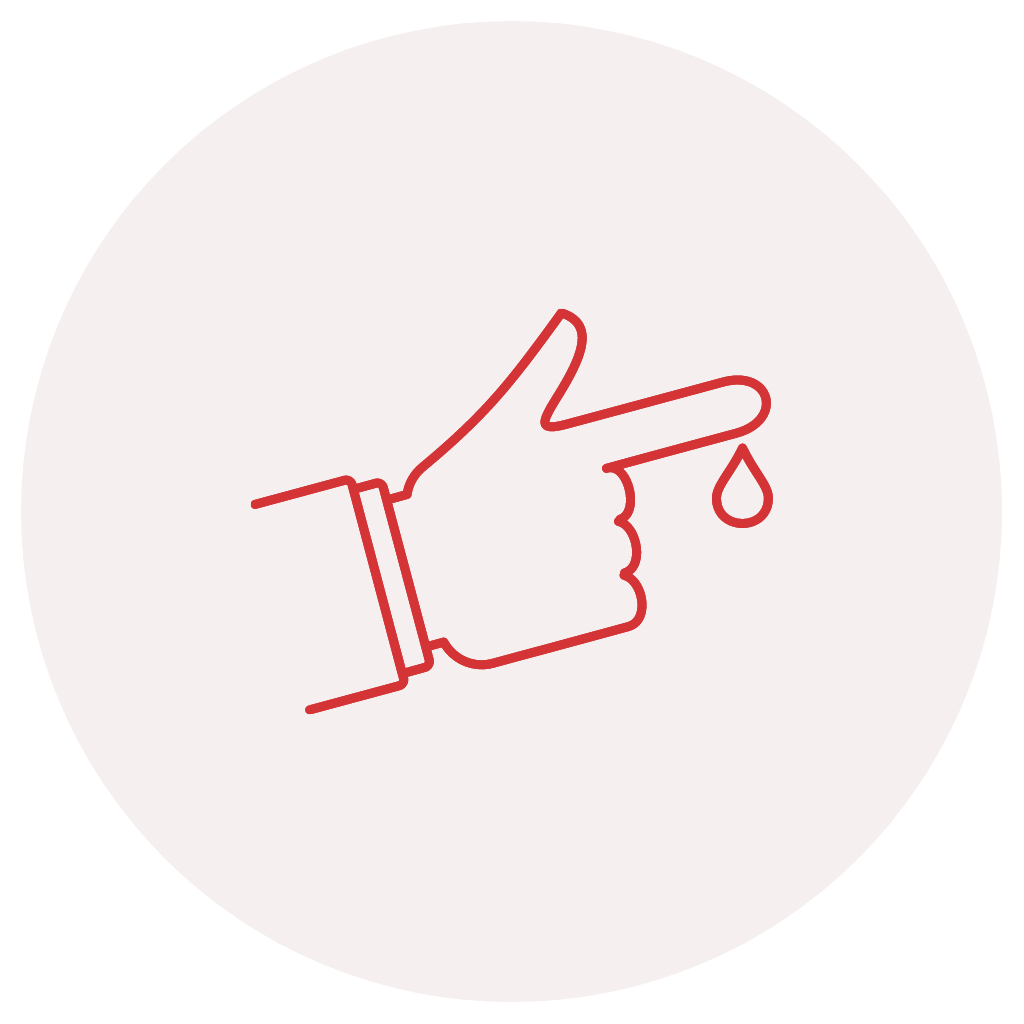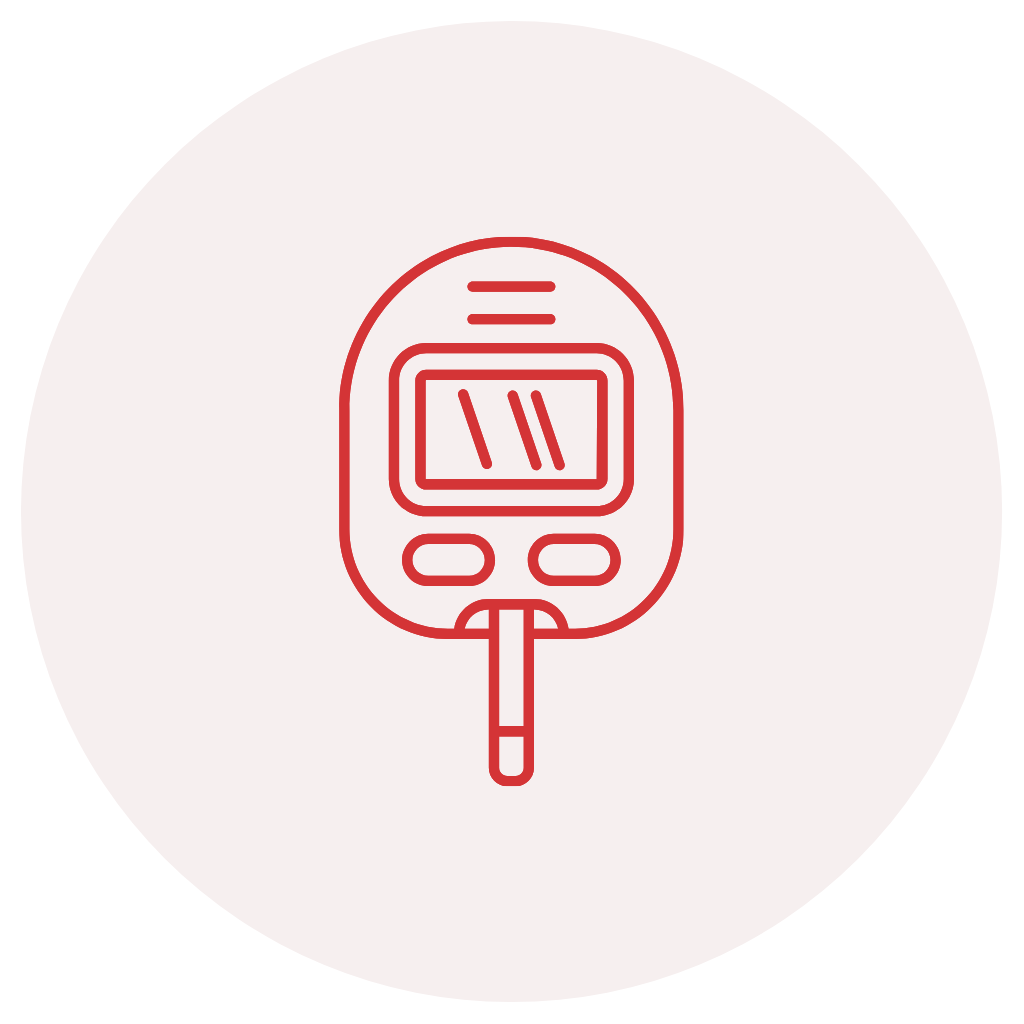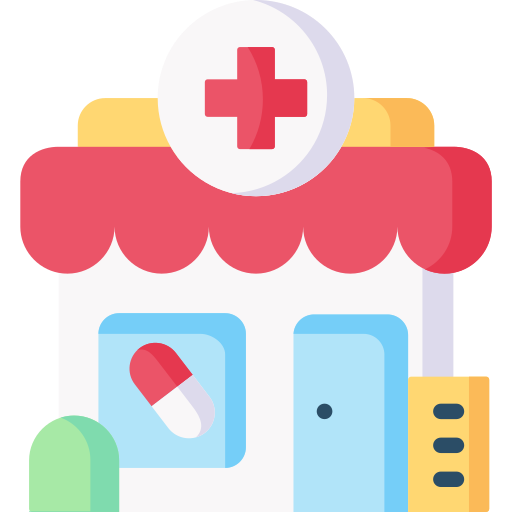
Pharmacy services
Blood glucose monitoring
At our pharmacies we offer a screening service to test your blood glucose levels to see whether you are at risk of developing diabetes, or simply to monitor your blood sugar levels if you have already been diagnosed by your medical professional. It’s completely confidential and only takes a few minutes.
How it works
The Process

The service will begin by the pharmacist asking you some questions on your medical history followed by a blood sample using a finger prick device

The blood sample will be placed inside a medical device which calculates your glucose (sugar) level in your blood

Your results will be documented, and your pharmacist will offer lifestyle advice or refer you back to your doctor according to your results
What is diabetes?
Diabetes is a metabolic condition affecting blood sugar levels.
In order for your body to function properly, it needs energy. One of the preferred sources of fuel of the body is glucose, a type of sugar that is broken down from carbohydrate foods such as bread, fruit and vegetables. Under normal circumstances, a hormone called insulin is produced by the body to help regulate the amount of glucose in the blood. However, in diabetic patients, there is a problem with the body processes that control the blood glucose levels and this results in its build-up.
Incidence
45,000 people (12.2%) of adults in the Maltese population suffer from diabetes.
Type 1 Diabetes
Type 1 diabetes is an autoimmune disorder in which your body attacks the cells in your pancreas which is responsible for producing a hormone called insulin, whose function is to lower blood glucose levels. This means that your body cannot make any insulin, and in fact, management of this condition always involves the administration of insulin via a subcutaneous injection.
Unlike type 2 diabetes, the symptoms of type 1 diabetes tend to appear more quickly and earlier in life (usually in childhood).
Type 2 Diabetes
In type 2 diabetes, your body is either not producing enough insulin or the insulin is being produced but your body develops a resistance to it due to factors such as obesity, high blood pressure, high cholesterol and smoking. As a result, the insulin being produced is not having the desired effect and blood glucose levels are not controlled.
Type 2 diabetes treatment typically involves maintaining a healthy lifestyle through carbohydrate restriction diets and regular exercise, with or without medication that helps maintain normal blood sugar levels. The type of medication and dosage varies widely according to individual needs, but is normally lifelong. Your general practitioner will chose a medicine and a dosage that is most suitable for you.
know the
Signs & Symptoms
As the body tries to remove the excess glucose in the blood through urine and break down fat as an alternative source of energy, people with diabetes typically experience the following symptoms:
- Blurred vision
- Drowsiness and increased tiredness
- Fruity-smelling breath
- Increased thirst
- Itchiness around the genital area or regularly contracting thrush (a type of yeast infection)
- Loss of weight and muscle bulk (more common in type 1)
- Needing to urinate more, especially during the night
- Slow healing wounds
Symptoms of type 2 diabetes often tend to be less obvious than those of type 1, and therefore can go unnoticed for an extended period of time. Recognising diabetes in the early stages of development can delay or prevent other more serious and long-term complications associated with the disease. If you frequently experience any of these symptoms, ease your mind by visiting one of our pharmacies to talk to your pharmacist to discuss the best way forward.
How to prepare
Before your consultation
There are 2 types of blood glucose levels: fasting and random.
A fasting blood glucose test is one which involves taking a sample of blood when on an empty stomach, usually first thing in the morning before having breakfast, whilst a random blood glucose test is a blood sugar test that is taken without needing to fast beforehand.
Depending on whether you have eaten or not prior to the test, your pharmacist will inform you on the range that your blood sugar level should be in, and record your results accordingly.
how we test
Your blood glucose
In one of our pharmacies, the service will take place by a trained pharmacist that will take a small sample of blood via a finger prick.
Depending on your result, we may ask you to come back for further assessment and may offer your lifestyle advice and ways of reducing your risk of developing type 2 diabetes. Alternatively, your pharmacist may also refer you back to your doctor for further medical investigation.
Do you want to monitor your blood glucose at one of our pharmacies?
No appointment needed! Simply visit one of our outlets and pay in-store.
Find a pharmacy
FAQS
Frequently Asked
Questions
How long will the service take?
The consultation will only take 5 minutes, but your pharmacist will take as long as necessary to answer any questions that you may have.
Do I have to pay for the service?
Yes. A payment of €5 for the service will be taken in the pharmacy at the time of your test.
Do I have to make an appointment?
No, you don’t. Your pharmacist may ask you to come at a certain time when the pharmacy is less busy to provide you the best service possible, or alternatively, you may want to request a particular time for peace of mind.
Can I monitor my blood glucose at home?
Yes, and frequent monitoring is advisable if you are diabetic. The World Health Organisation (WHO) recommends people with type 1 diabetes to monitor their blood glucose at least 4 times a day, while those with type 2 diabetes to check at least once a day.
Our pharmacies are well-stocked with a variety of blood glucose monitoring devices to suit your needs. However, if you suffer from diabetes, it is good to know that you are entitled to a free blood glucose monitoring machine through the pharmacy of your choice scheme.
Make sure to log your blood glucose measurements in a record file that is easily accessible so that you can show it to your doctor whenever you have a check-up. Speak to one of our pharmacists for any further queries regarding blood pressure monitoring and health records.
